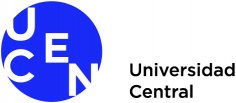Ver en español
Description of the English Course
The English course, seen as a fundamental general skill in the curriculum, establishes three general dimensions: (1) an instrumental dimension, referred to the command of oral and written communication in English as a foreign language, (2) an interpersonal dimension, referred to the capacity to work as a team across disciplines in international settings, using English as a tool for communication, and (3) a systemic and cultural dimension, referred to the use of English as a means for developing openness to other cultures. Each one of these dimensions of the English language correlates to the dimensions of development of the educational project of Universidad Central de Chile. In the context of this institutional foundation whose main pillar is the focus on competences, the English course contributes to the educational project of the institution by aiding its prospective professionals be recognised as:
- a competent professional who Knows due to the fact that the command of English as a foreign language -written and oral communication- allows them access to authentic sources of information (books, research papers, indexed published material, specialised journals, articles on the internet, etc.; all of them being a primary source of information), which allows them to combine a general culture founded on the acquisition of ample perspective on the fundamental questions of knowledge.
- a competent professional who Knows How to Do, seeing that the command of English as a foreign language -oral and written communication- helps them acquire a professional asset, and hence, develop their autonomy and entrepreneurial sense.
- an upright person and citizen for the world of tomorrow who Knows How to Be, because the command of English -oral and written communication- will allow him to be part of multidisciplinary teams internationally, to participate actively in exchange programmes, internships, graduate studies, etc., developing more and more their understanding of others, and their capacity of openness to new cultures.
